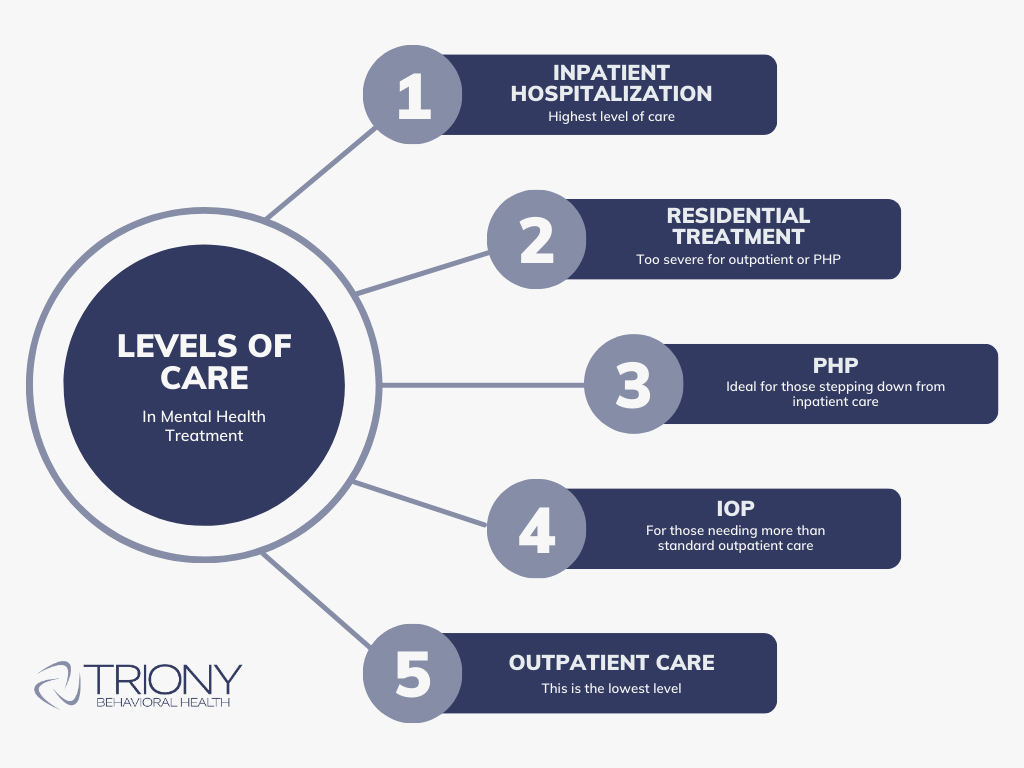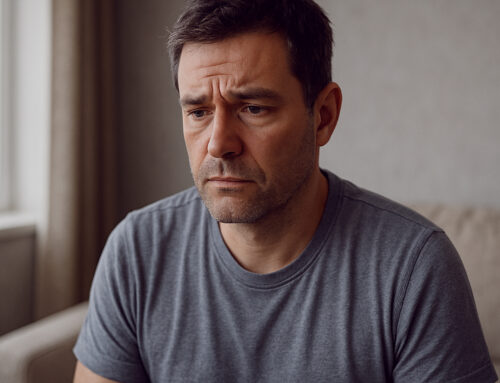Understanding the Levels of Care in Mental Health Treatment
When seeking mental health treatment, finding the right level of care is essential. According to NAMI recent data, 22.8% of U.S. adults experienced a mental illness in 2021, while 5.5% dealt with severe conditions like schizophrenia or bipolar disorder. Yet, nearly half of these individuals did not receive treatment. This gap highlights the need for understanding and accessing appropriate care.
Why Choosing the Right Level of Care Matters
Choosing the correct level of care ensures that treatment matches the individual’s needs. For example, someone struggling in an outpatient setting may not need a different therapist but rather a higher level of care. Understanding different psychiatric service levels helps individuals and families seek appropriate support, leading to better outcomes and a more positive experience.
Overview of Levels of Care in Mental Health Treatment
Below is a summary of key levels of mental health care:
- Outpatient Care
Outpatient therapy is the lowest level of care, typically involving weekly or bi-weekly sessions with a psychiatrist or therapist for medication management or counseling. It’s best suited for individuals with mild symptoms who can function independently in their daily lives. - Intensive Outpatient Programs (IOP)
For individuals who require more frequent sessions, IOPs provide therapy up to five days a week for a few hours each day. It offers a structured setting with both group and individual sessions, making it a step up from traditional outpatient care. - Partial Hospitalization Programs (PHP)
PHP, also known as “day treatment,” is a more intensive option, meeting five days a week for up to eight hours a day. It is a suitable transition for those stepping down from inpatient or residential treatment and focuses on stabilization and skill-building. - Residential Treatment
Residential care is designed for those whose symptoms are too severe for outpatient or PHP programs but do not require 24-hour medical care. Patients live in a structured environment for several weeks or months, working through therapies aimed at long-term recovery. - Inpatient Hospitalization
Inpatient care is the highest level of psychiatric care, used for individuals in acute crisis, such as those experiencing severe suicidal ideation or psychosis. The goal is immediate stabilization, with 24/7 monitoring for safety.

How to Determine the Right Level of Care
Choosing the correct level of care involves assessing symptom severity, daily functioning, and available support. At Triony Behavioral Health, we perform detailed evaluations to place each patient in the best program. Whether PHP, IOP, or traditional outpatient care, we ensure the treatment plan aligns with the patient’s current needs.
Moving Up and Down the Continuum of Care
Recovery is rarely linear. Patients may start with a higher level of care, such as PHP, and transition to IOP or outpatient therapy as symptoms improve. Conversely, someone struggling at a lower level might temporarily step up to a more structured program.
The Importance of Collaboration Between Providers and Families
Family involvement is crucial throughout treatment. Families often have the most information about a loved one’s history and current struggles. However, they may not understand the care options. At Triony, we prioritize family education, ensuring that loved ones are prepared to support recovery.
Final Thoughts on Finding the Right Mental Health Support
Finding the right level of mental health care can significantly impact recovery. If you or a loved one is struggling, it may be time to reassess the level of support. Contact Triony Behavioral Health at 1-888-689-1432 to learn more about our specialized men’s mental health programs and begin the journey toward better mental health.
Schedule consultation
Building a Foundation of Trust and Support
"In the midst of chaos, there is also opportunity." At the core of our services lies a deep commitment to creating a safe, supportive environment. We believe that a strong support system is crucial for healing and growth. Our team of compassionate professionals is dedicated to walking alongside you, offering guidance and understanding at every step of your journey.





